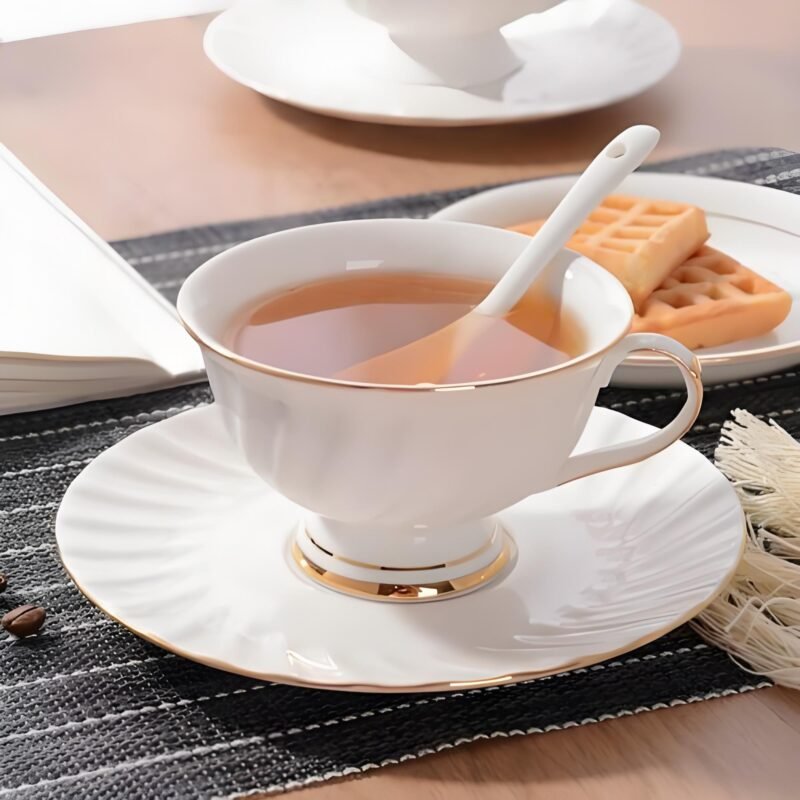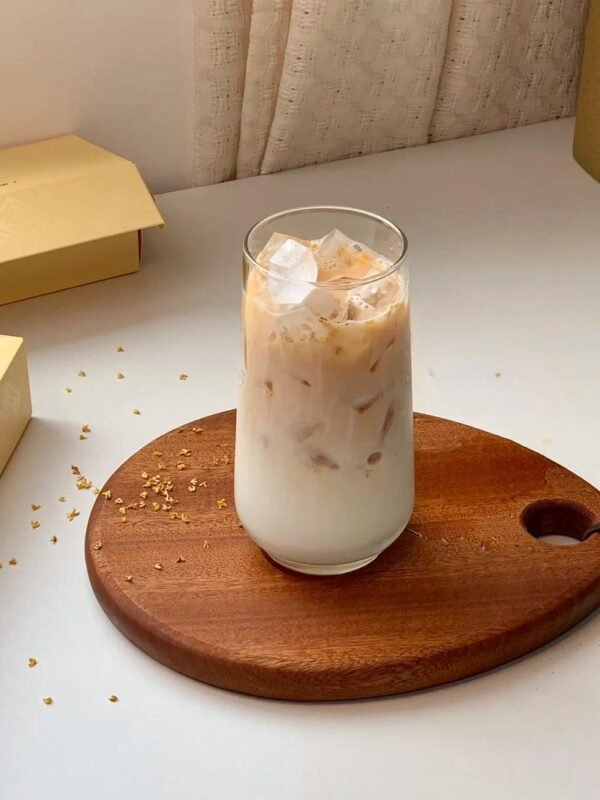is there more caffeine in tea or coffee: Tea or Coffee? The Ultimate Showdown
is there more caffeine in tea or coffee
is there more caffeine in tea or coffee? Through some data, analyze the caffeine differences between tea and coffee in depth, and reveal which one has more health value.

1. The Caffeine Face-Off
When morning grogginess hits, do you reach for a strong coffee or a soothing cup of tea? The answer isn’t as simple as you might think.
By the numbers (per 240ml cup):
- Coffee: ~95mg caffeine
- Black tea: ~47mg caffeine
- Green tea: ~28mg caffeine
At first glance, coffee wins. But hold on—Chinese tea has a few surprises up its sleeve.
2. Why Chinese Tea Stands Apart
While coffee delivers a quick caffeine punch, Chinese tea offers a gradual, sustained lift without the crash.
How premium Chinese teas manage caffeine differently:
- Dragon Well (Longjing): Slow-release caffeine for steady alertness
- Tieguanyin (Iron Goddess): Balanced caffeine from semi-fermentation
- Pu-erh: Aged to mellow out caffeine intensity
This harmonious energy reflects the wisdom of traditional Chinese tea culture—never too much, never too little.
3. The Science of Smart Brewing
Chinese tea masters have perfected caffeine control:
✔ Temperature matters: 85°C water preserves calming amino acids
✔ Timing is key: 30s first steep, 15s second—this “gongfu” method prevents over-extraction
✔ Multiple infusions: One serving yields 5-7 brews, distributing caffeine gently
Compare this to coffee’s all-at-once caffeine dump, and you’ll see why tea drinkers avoid jitters.
4. Health Benefits Beyond Caffeine
Chinese tea brings extra perks coffee can’t match:
☕ 40x more antioxidants than coffee
☕ L-theanine—a rare compound that smooths out caffeine’s edge
☕ Natural minerals like zinc for immune support
The result? Clean energy without coffee’s rollercoaster effect.
5. What Should You Drink?
- Need instant focus? Coffee (but skip it after 3pm)
- Want lasting clarity? Try Lapsang Souchong or Phoenix Oolong
- Caffeine-sensitive? White tea or aged Pu-erh are gentlest
- For long-term wellness? Chinese tea wins hands-down
Final Verdict
While coffee packs more caffeine per sip, Chinese tea delivers smarter energy—the kind that sharpens your mind without wrecking your nerves. Next time you need a pick-me-up, consider swapping your espresso for a properly brewed cup of Dragon Well. Your body (and productivity) will thank you.
Most people select tea based on taste alone—a disservice to its true value. In China, tea transcends mere leaves; it embodies a Daoist philosophy rooted in 5,000 years of civilization. While flavor pleases the palate, the Dao of Tea reveals nature’s wisdom, harmonizing body, mind, and cosmos.
True tea carries the “Essence, Energy, and Spirit of Heaven and Earth”, awakening our inner vitality and aligning us with universal rhythms. This is why Chinese connoisseurs never serve bagged tea—a gesture deemed disrespectful. Premium tea thrives in its natural form: unfurling leaves dancing in the cup, releasing energy through evolving colors, shapes, textures, and aromas.
Danju Jueluo Tea transcends sensory pleasure. Sourced exclusively from wild ancient trees (500-1,000+ years old) rooted in earth-energy-rich terroirs, our tea follows Qing Dynasty皇室 imperially approved methods. Zero pesticides, zero additives—each gram is a museum-grade rarity, with annual yields so limited that some trees require 1-year pre-orders. Owning it is a cosmic缘分 (yuanfen).
The Trinitarian Power of Danju Jueluo Tea
❶ Essence (精, Jing)
Our wild trees breathe pure mountain air. Their leaves release an earthy vitality that opens channels between humanity and nature.
❷ Energy (气, Qi)
Qi—the life force—propels bodily functions and defends against illness. Grown in geomantically potent “dragon vein” lands, our tea radiates such intense Qi that sensitive drinkers report:
- Heat waves coursing through meridians
- Sweat streaming along the spine
- Warmth pulsing at the Baihui (crown) and Yongquan (sole) acupoints
❸ Spirit (神, Shen)
Beyond physicality, our tea elevates consciousness. Sip mindfully, and you may:
- Visualize ancient tea forests in meditation
- Experience heightened mental clarity
- Enter states akin to Daoist/Buddhist cultivation
A Legacy of Imperial Alchemy
Founded by Madame Lianlian, descendant of the Magiya clan (Bordered Yellow Banner nobility), Danju Jueluo revives tea reserved for Qing emperors (1614 onward). Her ancestors’ estates straddled imperial dragon veins, where emperors built temporary palaces to savor their legendary brews.
Why We Outshine Ordinary Teas
Factor | Danju Jueluo | Mass-Produced Teas |
Source | Wild 500+-year-old trees | Cultivated bushes |
Terroir | Geomantic “dragon veins” | Flat plantations |
Energy | Wu Xing (五行) balanced | Mechanically processed |
Yield | 8-12 kg/year per tree | Tons/hour harvests |
Clients | Emperors, modern elites | Commodity markets |
Danju Jueluo: Not Just Tea, but a Portal to China’s Living Dao.To drink it is to commune with centuries of wisdom—a privilege once reserved for emperors, now shared with the worthy few.




